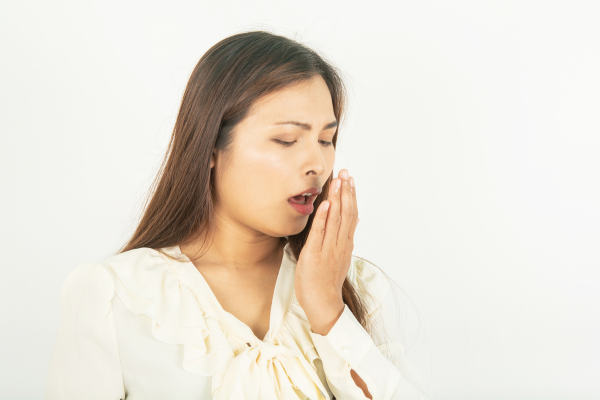You have only a handful of seconds to make a first impression on someone else. People remember things like a confident smile, direct eye contact, positive body language, and a firm handshake. Unfortunately, they also remember bad breath.
Bad breath is one of those things that happens to us when we least expect it, but it can create a strong reaction in those around us. Sometimes covering it up with gum, mints, or mouthwash can be enough to avoid a temporary problem, but the more serious issue is what might be causing the bad breath and what we can do about it.
Here are some of the more common causes of bad breath.
- Poor Dental Hygiene – Most of the time, lack of proper dental hygiene is to blame. Bits of food left in the mouth create bacteria, which can build up on the teeth, tongue, gums, and other surfaces inside the mouth. Additionally, not having a regular dental care routine also leads to things like frequent bleeding, cavities and tooth loss, and gum disease. Any one of these issues or all of them together can cause bad breath.
- Diet – Large amounts of sugar in foods and drinks interact with the bacteria that is already present in the mouth to trigger unpleasant breath. Breath is also affected by participating in high-protein and low-carb diets. Both affect the body’s metabolism rate and can produce bad breath via digestive problems.
- Aromatic Foods – Garlic, onions, spices, and other aromatic foods affect your breath when you exhale.
- Coffee – The strong flavor of coffee can be difficult to cover up, but the caffeine also decreases the production of saliva in your mouth. Bacteria that cause bad breath thrives when your mouth is dry.
- Smoking and Chewing Tobacco – Aside from the unmistakable odors and flavors, tobacco products damage tender gum tissue resulting in soreness, bleeding, gum disease, and potential tooth loss.
- Alcohol – This is another culprit that decreases the saliva production in your mouth, leaving it vulnerable to bacteria.
- Acid Reflux and Other Digestive Issues – Air and stomach acids that rise up through the esophagus and exit through the mouth cause unpleasant breath.
- Persistent Dry Mouth – Xerostomia is a condition that occurs when the ability of the salivary glands to keep the mouth moist is impaired, which gives bacteria a head start.
- Prescription Medications – Bad breath can be caused by dryness or by the chemicals that are carried through the bloodstream and into the mouth.
- Other Health Conditions – Bad breath can be a warning sign of a medical issue or can be the result of infections (sinus, respiratory, and tonsil), diabetes, kidney and liver problems, and blood or metabolic disorders.
The best defense against bad breath is to maintain good oral health. Most of the solutions for bad breath are simple and involve no more than regular brushing and flossing and paying regular visits to your dental health professional to correct current issues and prevent future problems. The dental health providers at the Atlantis Dental Roundhouse can help you identify some of the causes of bad breath and give you strategies to avoid it. Contact us today to schedule an appointment.
